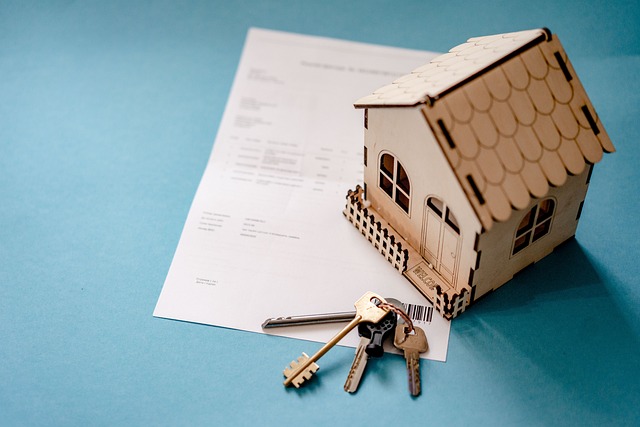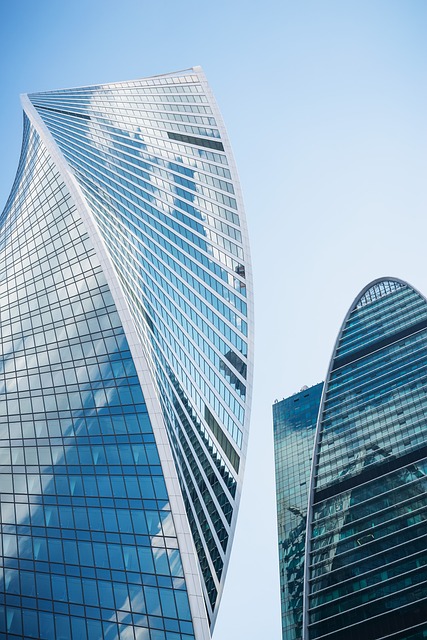Executive Condos (ECs) in Singapore offer a unique housing option for both locals and expatriates, blending private property perks with public housing subsidies. Expatriates with a valid Work Pass can purchase an EC after three months of employment, provided they meet the income and eligibility criteria set by the Housing & Development Board (HDB). After five years of occupation by a Singaporean citizen or permanent resident, the EC becomes fully privatized and can be sold on the open market, a process known as 'Executive Condo After 10 Years.' This policy facilitates a transition for expatriates who have resided in an EC for at least ten years to move towards homeownership. Prospective buyers should consider the financial implications, including initial costs and long-term value appreciation, when investing in an EC. The HDB's application process for purchasing an EC after the 10-year mark is transparent and inclusive, allowing for a seamless transition for those who have completed the minimum occupancy period and are eligible under the HDB's guidelines. This opportunity not only provides a substantial living space but also offers a viable pathway to homeownership for expatriates in Singapore.
Singapore’s diverse living options cater to various needs, with Executive Condos (ECs) standing out as a viable and affordable alternative for expatriates. This article delves into the eligibility and practicalities of owning an EC, particularly focusing on the unique aspects for expats after the 10-year mark. Understanding the nuances of EC living, from the initial application to the long-term implications, is crucial for those considering this type of public housing. We’ll explore the financial commitments, occupancy rules, and how the Central Provident Fund (CPF) factors into eligibility. Additionally, we’ll compare ECs with other public housing options, navigate the resale market, and examine policy changes that affect expat ownership. Join us as we guide you through the intricacies of Executive Condos after 10 years in Singapore, ensuring you make an informed decision for your long-term residency.
- Understanding Executive Condos (ECs) in Singapore: A Primer for Expats
- Eligibility Criteria for Executive Condos for Singles and Families
- The 5-Year Minimum Occupation Period: What Expats Need to Know
- Beyond the First Decade: Life After 10 Years as an Expat in an EC
- Financial Considerations: Affordability and Cost of Owning an EC
- The Application Process: How Expats Can Apply for an Executive Condo
Understanding Executive Condos (ECs) in Singapore: A Primer for Expats

In Singapore’s vibrant real estate landscape, Executive Condominiums (ECs) offer a unique blend of private property benefits with public housing subsidies, making them an attractive option for both locals and expatriates. For expatriates considering the purchase of an EC, it is crucial to understand the specific eligibility criteria that apply. Upon completing a minimum of five years of marriage or divorce, both Singaporean citizens and permanent residents can apply to purchase an EC. Furthermore, after satisfying this initial occupation period, the property becomes fully privatized after a further five years, aligning with the concept of ‘Executive Condo After 10 Years’. This transition grants the owners the flexibility to sell their unit on the open market without the initial restrictions. For expatriates, it is essential to note that they must meet specific criteria to be eligible to purchase an EC. They are allowed to buy an EC if they have a valid Work Pass and have been employed for at least three months before applying for the EC. This primer on ECs highlights the importance of understanding these conditions, as they play a pivotal role in the housing journey of expatriates in Singapore, offering a pathway from public to private housing with potential capital appreciation over time. Understanding the eligibility and timelines associated with EC ownership is key for expatriates looking to settle in Singapore and secure a home that grows with their needs and circumstances.
Eligibility Criteria for Executive Condos for Singles and Families

Singles and families interested in Executive Condominiums (ECs) in Singapore must meet specific eligibility criteria set forth by the Housing & Development Board (HDB). For singles, the eligibility is particularly tailored. A single individual, including those who are divorced or widowed without any children or have children aged 21 years and above, can apply for an EC. They must also meet the Monthly Household Income Ceiling set by the HDB, which varies according to unit type and size. For families, the eligibility criteria include at least one applicant being a Singapore Citizen, and other applicants must be either SCs or Permanent Residents (PRs). The family nucleus must comprise at least two related adults, with one being an SC. Additionally, the applicant must not own any flat sold by the HDB or any HDB flat granted under the Minimum Occupation Period (MOP). For those who have previously owned an HDB flat and are looking to purchase an EC after 10 years from the date their previous flat was granted, they must satisfy the MOP requirement. This provision allows for a broader range of housing options for residents at different stages of life, catering to the diverse needs of the population.
The 5-Year Minimum Occupation Period: What Expats Need to Know

When considering the purchase of an Executive Condominium (EC) in Singapore, expatriates must pay particular attention to the 5-Year Minimum Occupation Period (MOP) rule. This regulation dictates that a Singaporean citizen or permanent resident must occupy the EC for at least five years before they can sell it on the open market. For expatriates, this rule is crucial as it impacts their long-term investment strategy and exit plan from the property. It’s important to note that while this MOP does not apply to foreigners who are non-permanent residents orSingaporeans/PRs marrying a foreigner and living in the EC, expatriates who hold an ownership interest in the EC must adhere to it if they wish to sell the unit after 10 years without penalty. Post-MOP completion, the EC becomes freely saleable to both citizens and permanent residents, aligning with market conditions and offering a broader pool of potential buyers. Expatriates who plan to stay in Singapore beyond the MOP period can then leverage this rule to either upgrade their property or release capital from the sale. Thus, understanding the 5-Year MOP and its implications after 10 years is essential for expatriates considering an EC as a long-term residence option.
Beyond the First Decade: Life After 10 Years as an Expat in an EC

Beyond the first decade as an expatriate residing in an Executive Condominium (EC) in Singapore, expats often find themselves at a crossroads. The initial years are typically filled with adaptation and familiarization with the local environment, laws, and lifestyle. However, as the decade-long mark approaches, expats must reassess their living situation under the SingPass portal, which tracks their length of stay. For those who have been in Singapore for more than 10 years, the eligibility criteria for staying in an EC change significantly. Under the Minimum Occupation Period (MOP) policy, after five consecutive years of occupying the EC, expats can then consider selling it back to the Singapore government without penalty. This policy is designed to ensure that EC units are primarily available to first-time homeowners and provide affordable housing options for Singaporeans. For long-term expatriates who have made an EC their home, planning for the end of the MOP is crucial to navigate the changing regulations with ease. It’s a period of transition where expats must consider alternative living arrangements if they wish to extend their stay beyond the MOP completion. Understanding the nuances of this policy and its implications on their long-term residency is essential for those who have made an Executive Condo After 10 Years their home away from home.
Financial Considerations: Affordability and Cost of Owning an EC

When considering the purchase of an Executive Condo (EC) in Singapore, financial affordability and the long-term costs are crucial factors for expatriates to evaluate. Prospective owners must understand that after fulfilling the minimum occupancy period of five years, they can sell their EC on the open market, which may appreciate in value over time. This aspect is particularly relevant for expats with a clear timeline of when they intend to leave Singapore, as it allows them to potentially recoup their investment or even make a profit. However, before reaching this point, it’s essential to consider the initial affordability and ongoing costs associated with owning an EC. These costs include mortgage payments, maintenance fees, property taxes, and insurance, which can vary significantly based on the EC’s location, size, and market conditions. Prospective buyers should carefully analyze their financial situation, taking into account their income stability and the total cost of ownership over the initial five-year period. This due diligence will ensure that the decision to invest in an EC aligns with their long-term financial planning and lifestyle aspirations, particularly when considering the Executive Condo as a housing option after 10 years in Singapore.
The Application Process: How Expats Can Apply for an Executive Condo

Expats interested in owning an Executive Condominium (EC) in Singapore after a minimum occupancy period of 5 years have a clear path, especially after fulfilling the ‘after 10 years’ criterion. This criterion refers to the stipulation that only individuals who have owned a resale flat for at least 10 years are eligible to apply for an EC. The application process is designed to be inclusive and transparent, ensuring that expatriates have the same opportunities as Singaporeans to invest in property.
To initiate the application process, expats must satisfy specific criteria set by the Housing & Development Board (HDB). These include being a Singapore citizen or permanent resident for at least 10 years, having no outstanding housing loans, and meeting the income ceiling requirements. Once these prerequisites are met, applicants can then proceed with the application through the HDB’s resale flat portal, selecting an EC within their preferred location and budget. Upon successful application and fulfillment of the requisite waiting period, expats can enjoy the benefits of owning an Executive Condo after 10 years, which often comes with larger living spaces and facilities tailored for families, compared to standard HDB flats. This transition into EC living is a significant step for expatriates who wish to upgrade their housing options without being subjected to the restrictions on private property ownership that apply to Singaporeans.
Singapore’s real estate landscape offers a unique housing solution for expatriates in the form of Executive Condos (ECs), tailored to the middle-income group. This article has demystified the eligibility criteria, financial implications, and application process for ECs, providing a comprehensive guide for singles and families alike. The 5-Year Minimum Occupation Period is a key consideration that sets ECs apart from other housing options, ensuring a stable community. Post a decade of residing in an EC as an expat, homeowners can enjoy the benefits of owning a property outright or passing it on to their loved ones without the five-year restriction. For those pondering their long-term accommodation needs in Singapore, understanding the nuances of Executive Condo After 10 Years is crucial for informed decision-making. This article serves as a valuable resource, encapsulating all facets of EC ownership for expatriates, from initial eligibility to life beyond the first ten years.
